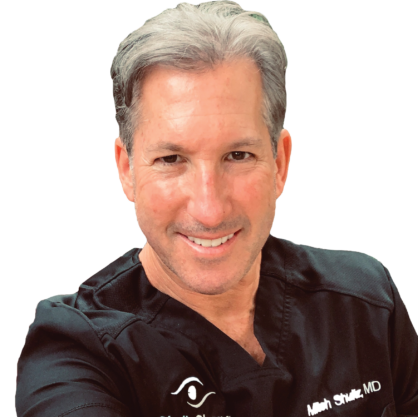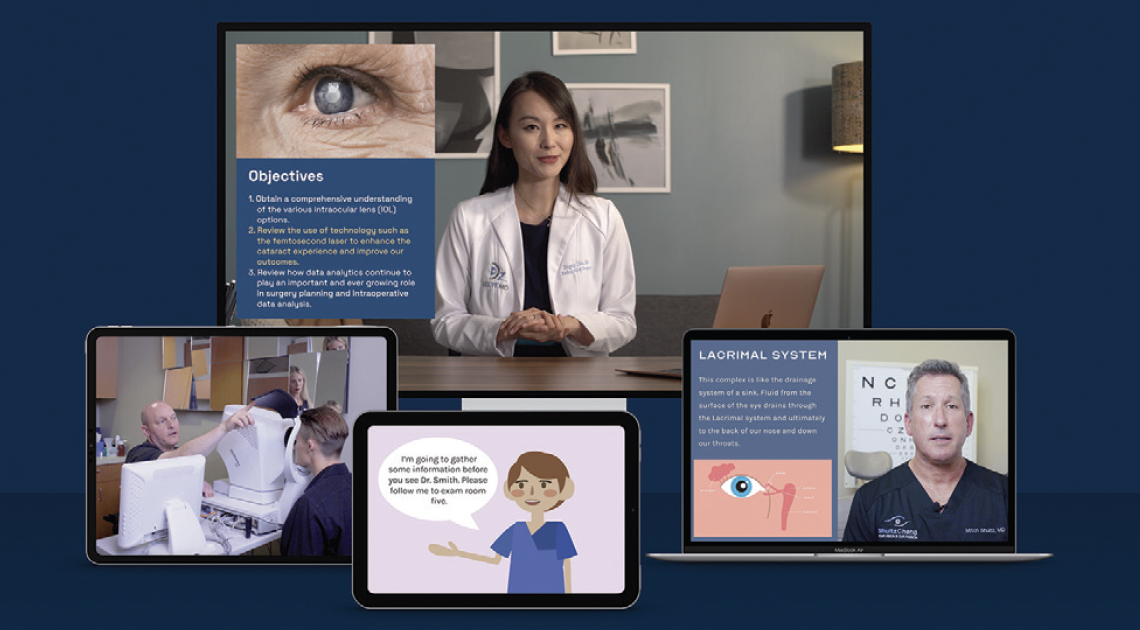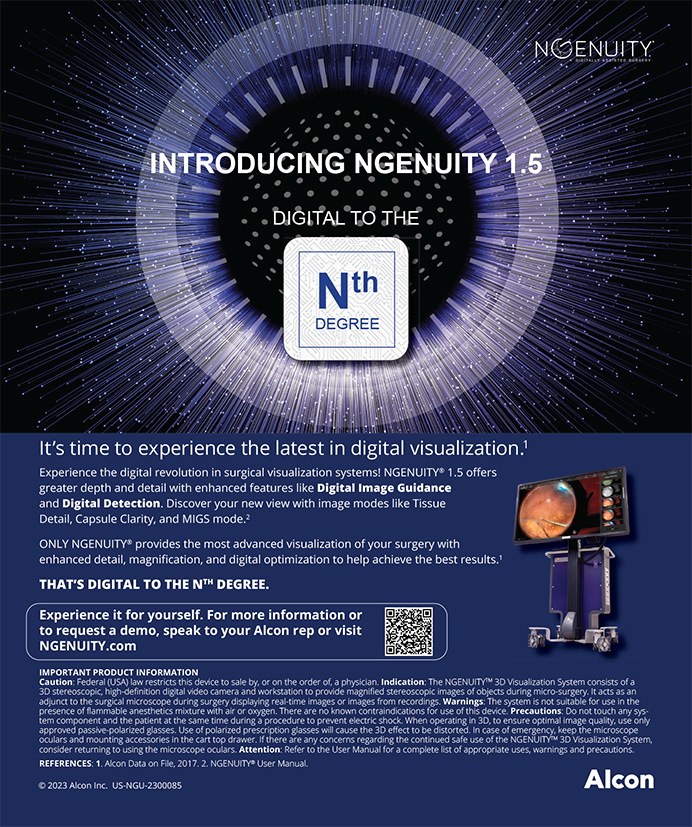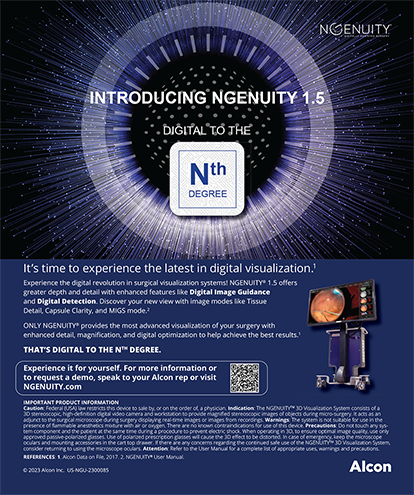Company: Alchemy Vision
Clinical Practice: Shultz Chang Vision, Northridge, California
Claim to Fame: Leveraging clinical experience and a wide industry network to cofound a business-to-business, software-as-a-service, educational technology company building a modern digital platform to train and educate eye care teams
Dr. Shultz, cofounder of Alchemy Vision, an e-learning platform for eye care teams and technicians, discusses the importance of collaboration and peer to peer education.

CRST: You are a cofounder of Alchemy Vision, an e-learning, video-based platform leveraging technology to facilitate training and education of technicians and key members of eye care practices. Where did the idea for the platform come from?
Mitchell C. Shultz, MD: Near the end of the COVID-19 lockdown, I was listening to an episode of the Ophthalmology Off the Grid podcast series (click here to listen to the podcast) in which several colleagues discussed challenges in their busy practices before the pandemic and how they now felt it was a great time to educate staff. As an independent private practitioner with a busy refractive practice, I could easily relate to the topic, as I too had been challenged with finding the time to educate my staff. I had tried many different things. I had bought an AAO-supported education for ophthalmic medical assistants book for each new hire and found that the books sat on the shelf. I brought in a paid consultant to teach to the book and set aside time every other week for the staff to meet with the trainer. It was costly, but it worked great. When people left the practice, however, those skills were lost.
Around the same time, my colleague Flora Azucena reached out with an idea of starting an e-learning platform to solve the problem of inadequate workforce development in eye care. Flora’s experience in business, entrepreneurship, and health care qualified her to lead what is now Alchemy Vision as the company’s CEO. We spent 6 months researching and mapping a feasibility plan that took into account the current competitive landscape, pricing models, time constraints of practices, and how we could engage and inspire young technicians to build a career in eye care. From inception to launch, it has been a rewarding experience, and we hope to enrich the lives of patients and eye care teams through modern and engaging video-based education.
CRST: How did you use your clinical and surgical experience to determine the learning modules to include in the platform?
Dr. Shultz: It takes time for staff to learn the terminology and understand the intricacies of the eye. During the past year, under my guidance as chief medical officer, we have developed four core products, which we call Learning Paths (Figure). The first is Emerge, a 3-week course that provides sufficient knowledge and confidence for new hires, whether they have eye care experience or not. The second learning path, Entry, is our flagship product comprised of 85 modules and 10 chapters. The course is designed for staff to complete in periods of 20 to 30 minutes. Some practices allocate 30 minutes to 1 hour of learning per week for their staff. We’ve found that some technicians also go through the modules during their breaks and own time. Our objective is to guide eye care teams on how to talk to patients and learn about pathophysiology, disease states, and technologies in the office. Technicians, unlike other medical subspecialties, must learn to use many different instruments. Entry explains how to start, calibrate, and use the machines and how to understand what is on the screen. The third Learning Path is Enrich, a patient-centered solutions model designed to enhance the soft skills team members need to provide a great patient experience. Additionally, we aim to improve workflow by training counselors to talk to patients about product offerings that can benefit the practice financially—products and procedures that insurance doesn’t cover. We continue to work with industry manufacturers on the fourth product, Elevate. This is a growing library of content aimed at educating eye care teams on the many innovative products available for patients today.

Figure. Alchemy’s real-world video modules are taught by renowned eye care physicians.
Courtesy of Felipe Latorre
CRST: How has your partnership with Flora influenced the direction of the company?
Dr. Shultz: One of my roles is determine the areas of education and ensure that the content is accurate and meets our goals and community standards. Together, Flora and I built the company’s founding medical team, and we work with industry to bring medical education to practices across the country. As CEO, she does 100% of the hard work, day in and day out—business strategy, fundraising, and overseeing technology development. Our third cofounder, Felipe Latorre, serves as chief design officer. His experience at Apple and other tech-enabled startups has benefited Alchemy Vision as we define our brand and messaging, and provide learners with a user experience.
CRST: How have other ophthalmologists in the community contributed to the success of the company?
Dr. Shultz: Flora and I relied on friends—our founding medical team—to help build the initial product. They included I. Paul Singh, MD; Nicole R. Fram, MD; Eduardo Besser, MD; and Felicia Lew, OD. Colleagues in the CEDARS/ASPENS society have also been supportive, including Gary Wörtz, MD; Y. Ralph Chu, MD; Alice T. Epitropoulos, MD; and Eva Liang, MD. Gary, in particular, first helped with the lightbulb moment that Alchemy Vision needed to exist. It was his podcast I referred to earlier. He understood what we were trying to do and used the platform to engage with his staff. He found that it brought scribes up to speed quickly. We’ve trained more than 1,000 technicians and have worked with practices of all subspecialties and sizes across the country We take their feedback to further shape the product and the things that we’re doing with the company.
CRST: You’re still in active practice, you participate in FDA clinical trials, and you were named one of the best cataract surgeons in America this past year. How do you handle that balancing act?
Dr. Shultz: I had to learn to prioritize. As an active clinician, I don’t spend every minute of my day dealing with Alchemy Vision, but the company consumes many of my early mornings, late evenings, and weekends. When I go to industry-related meetings, I split my time 50/50 between clinical work and Alchemy Vision. I wouldn’t do this if I didn’t love it. I am passionate about being a practicing physician because I love doing cataract and glaucoma surgery, helping people, and witnessing the joy my patients feel after surgery when they see better. I also love the feedback I get on Alchemy Vision. When I talk to doctors who use the platform, I ask them, “What things do you like about it? What things don’t you like?” The only negative feedback we’ve had is that people want more content. We will soon be working on retina content, something we’ve been asked for often.
CRST: What do you find hardest about being an entrepreneur in clinical practice, and what was your biggest learning experience from starting and helping to run Alchemy Vision?
Dr. Shultz: The hardest thing is my brain doesn’t turn off, so finding time for myself is important. Exercise gives me some energy back and helps me focus. I’ve run a small business for a long time: my medical practice. Building a company from the ground up, such as Alchemy Vision, is a whole other level. This experience is unique because so many different pieces are involved. In building the company, we’re creating technology to drive change. In order to accomplish our purpose, we meet with venture capitalists and angel investors—something I had not done before. Understanding how to engage with people to raise money to build an infrastructure that will revolutionize learning in health care has been my biggest learning experience.




